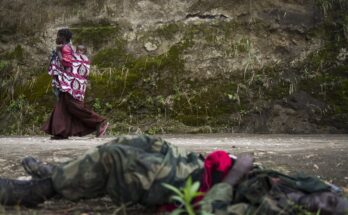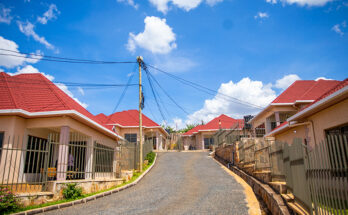The recent arrest and charging in a Uganda military court of top police officers with illegally working with Rwanda to repatriate refugees to their home country is the most open flare-up in the tense relations between Kampala and Rwanda.
This is despite relations seemingly having improved when both Presidents Yoweri Museveni and Paul Kagame made several state visits in 2011. Both presidents recently attended the Head of State Dialogue at the Africa Global Business Forum in Dubai, UAE on November 1.
Diplomatic sources in both Kampala and Kigali say no official complaint has been made by Uganda to Rwanda but they say tensions have been simmering for some time.
The sources cite a long list of disagreements between Kampala and Kigali, some of which have played out in the open.
In 2015, Kampala and Kigali reached an understanding with Tel Aviv to repatriate Eritrean refugees from Israel to Uganda and Rwanda for resettlement.
Mediated by Israel’s national intelligence agency Mossad, the agreement gave each country a quota of refugees to host. Soon after, Uganda’s Minister for Regional Co-operation, Philemon Mateke, summoned Rwanda’s High Commissioner in Kampala, Frank Mugambagye, and reportedly lodged a complaint that Kigali was resettling its quota of refugees in Uganda.
Rwanda suggested that the two countries set up a joint verification committee to handle these allegations. However, Uganda did not follow up on the matter, according to an official privy to the disagreement.
Several concerns
Rwanda is said to have also raised several concerns, many of which Kigali officially and informally communicated to Kampala. One such concern was appointments of public officials thought to be hostile to Rwanda.
For example, in July 2016, when Kampala appointed Philemon Mateke Minister for Regional Co-operation, Kigali raised concerns with Kampala over the appointment.
In March this year, Uganda moved its long-serving High Commissioner in Rwanda, Richard Kabonero to Tanzania. He is said to have good relations with Kigali.
It is alleged that many Ugandan officials perceived to have good relations with Rwanda were removed from their posts and replaced with tothers considered hostile to Kigali.
One such move was the replacement of Brig Ronald Balya as director-general of Internal Security Organisation (ISO) with Brig Francis Kaka. Brig Kaka is known to be close to President Museveni’s younger brother, Gen Salim Saleh, with whom Kigali is uncomfortable.
Tension
Tensions were yet again strained when the brash Lt Gen Henry Tumukunde, who had been at loggerheads with Kampala; was rehabilitated and appointed Minister of Security.
On his first official visit to Kigali, he failed to meet his counterparts. Brig Abel Kandiho, whom Rwanda claims is hostile to Kigali, was appointed Chief of Military Intelligence.
For many officials in Kigali, it is not surprising that the trio of Kaka, Tumukunde and Kandiho are behind the current manhunt for Ugandan police officers accused of collaborating with Rwandan intelligence to kidnap and illegally repatriate Rwandan dissidents in Uganda.
Diplomatic sources say the first indication that it was difficult for the two nations to bury the hatchet came in July 2012, when the daughter of deceased Rwandan intelligence chief Patrick Karegeya, Portia Mbabazi Karegeya, who was living in exile in South Africa came to Uganda. On arriving at Entebbe Airport, immigration officials refused her entry because Rwanda had cancelled her passport.
However, some top Ugandan military officials, one of whom was closely linked to State House, came to the airport and facilitated her entry into the country without going through immigration.
Once inside Uganda, Ms Karegeya got a Ugandan passport and was helped by government officials to get a visa to Canada. Some Ugandan officials felt the move was a snub to Rwanda. When Ms Karegeya tried to fly out to Canada, immigration officials denied her exit because some Ugandan officials had cancelled her new passport.
Once again, senior military officials intervened at Entebbe Airport and a scuffle almost ensued between the military officials and the police, which saw Ms Karegeya miss her flight.
The Rwandan government advised Uganda to give Ms Karegeya a one-way travel document to South Africa where she had refugee status. From there she could get a UN document to travel to Canada. However, Ugandan officials reinstated her passport and helped her leave Uganda for Canada. Rwanda was incensed but blamed the problem on unco-ordinated actions by different arms of government.
In 2013, Rwandan students escaped from Kigali to Old Kampala Police Station, where they claimed to be seeking asylum as Rwanda was forcing them to repeat Senior Six. Ugandan officials contacted the Rwanda government to verify the claim and concluded it did not merit refugee status. They worked with the Rwandan High Commission in Kampala to arrange for the students to be taken back to Kigali.
On the night before the students were to travel back to Kigali, the students changed their story and claimed they ran away because the government was trying to forcefully recruit them into the Congolese rebel group called M23.
Rwanda is said to believe that security operatives in Kampala coached the students to change their story. However, Rwanda did not file an official complaint.
Uganda worked with the UNHCR and the students were given refugee status and later repatriated to Norway and Sweden.
Strained tension
Another incident that further strained the tensions between Uganda and Rwanda was when according to a source, the State House switchboard in Kampala called the Rwandan High Commissioner, Frank Mugambagye, and informed him that Rwanda’s First Lady was about to land at Entebbe Airport.
Mr Mugambagye was surprised at the unexpected and unusual arrival, but rushed to the airport. On arriving at Entebbe, he found the widow of the late Fred Rwigyema — the first leader of the Rwanda Patriotic Front who died on the second day of the invasion of that country — being received like a head of state.
The matter was reportedly discussed with unease in Kigali.
Sources in Rwanda say Kigali decided to ignore these incidents as minor provocations by hostile officials. However, the sources added that the real problems began when Rwanda started feeling that Uganda’s actions were impinging on its strategic goals.
One such issue was the fibre-optic cable that Uganda was supposed to connect up to Katuna. Uganda delayed the construction of the cable line for almost nine years.
Then, Presidents Museveni, Kagame and Kenyan President Uhuru Kenyatta began to fast-track regional infrastructure under the Northern Corridor project through what came to be known as the Coalition of the Willing.
Midway, Uganda changed its mind and decided to prioritise the line from Kampala to West Nile region on the border with Democratic Republic of Congo and South Sudan.
Officially, Uganda claimed that it would construct both lines at the same time. However, the IMF and the Bank of Uganda both argued that given the country’s debt sustainability status, Uganda could not afford it. Both recommended that Kampala choose one of the lines.
During meetings between the three countries, Kenya proposed to sell electricity to Rwanda to solve its power deficit. Uganda was supposed to build a transmission line to the border with Rwanda, but initially claimed it did not have the money. Rwanda talked to the African Development Bank, then led by Rwandan national Donald Kaberuka, to offer Uganda the money. Kampala then claimed it had got money from the French to build the line. But the promise to constructing never materialised.
Another thorny issue involves Rwandan dissidents and people suspected of genocide activities, whom Kigali seeks to have repatriated to Rwanda (for those accused of genocide activities) or relocated to other countries (for those accused of threatening Rwandan security).
Uganda reportedly made promises to act but did not, arguing that there needs to be an extradition treaty first.
A diplomat says that in 2009, Kampala and Kigali negotiated such a treaty, which was signed by Sam Kutesa, Uganda’s Foreign Minister and his Rwandan counterpart, then then Charles Muligande. Rwanda took the agreement to parliament and it was ratified. Uganda never took the agreement to parliament for ratification.
In May, the attorney-generals of Uganda and Rwanda and the inspector generals of police of both countries met in Kampala to address this issue. Uganda promised to ratify the treaty within a month but is yet to do so.
The arrest of senior police officers in Uganda, all of whom are close to the Inspector General of Police Kale Kayihura, raised eyebrows in Kigali. IGP Kayihura is a Munyarwanda by ethnicity and President Kagame was the best man at his wedding.
Some powerful figures inside Uganda’s security forces have accused IGP Kayihura of disloyalty to Uganda. Given that the arrested police officers are all close to the inspector general, many observers in Uganda see this as a triumph of those opposed to the IGP. The seeming differences within Uganda’s security forces thus mask the wider regional tensions between Kampala and Kigali.

https://www.habeshatimes.com/uganda-kampala-arrests-highli…/


